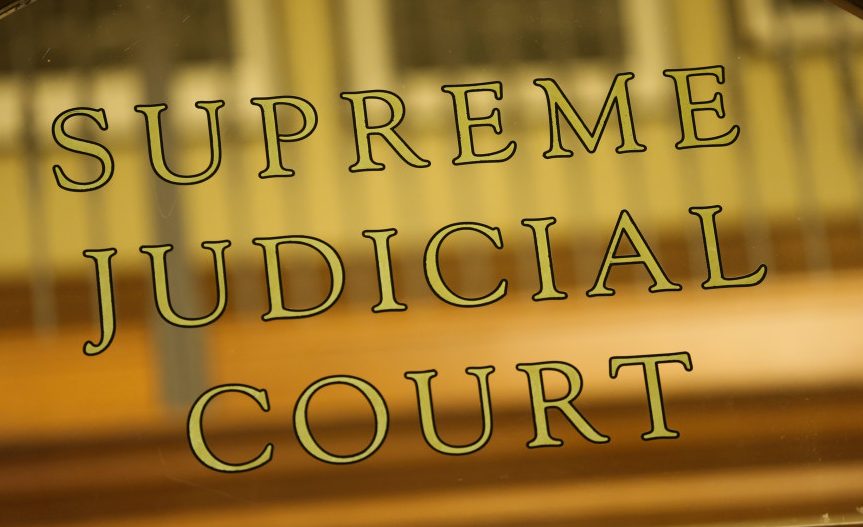
Trump ballot question comes too soon for Massachusetts high court
A move to see the state’s highest court weigh in on the election commission’s authority to determine whether former President Donald Trump should be tossed from the Massachusetts Republican Primary ballot has been denied.
The high court declined on Monday to hear the case against the State Ballot Law Commission brought by concerned voters, since it’s not entirely clear Trump will be the Republican nominee and see his name on a general election ballot.
“The petitioners’ objections have, in essence, come too soon. If there is any question whether the commission has the authority or jurisdiction to consider the petitioners’ objections regarding Trump’s eligibility to appear on the general election ballot, that question will not become ripe until, and if, he is selected as his party’s nominee for President,” Associate Justice Frank Gaziano wrote.
After nine Bay State voters told the State Ballot Law Commission that Trump’s actions leading up to and during the attack on the U.S. Capitol on January 6, 2021, amounted to a violation of a constitutional clause which bars insurrectionists from office, they were told the commission did not have the jurisdictional authority to remove Trump from the primary ballot.
The plaintiffs in the case were quick to ask the Massachusetts Supreme Judicial Court if they would take up the matter on an emergency basis and either force the commission to rule or make a choice on Trump’s eligibility themselves.
The high court judge, in his ruling, did not get into whether or not Trump did, in fact, violate Section Three of the Fourteenth Amendment. That law, which passed following the U.S. Civil War and aimed to keep former Confederate officials out of office, and its applicability to the 45th president, has already been taken up by the U.S. Supreme Court.
“The Supreme Court’s decision in Trump vs. Anderson, scheduled for oral argument on February 8, 2024, may resolve the underlying issue that the petitioners present here regarding whether Trump is disqualified from public office pursuant to section 3 of the Fourteenth Amendment of the United States Constitution,” Gaziano wrote.
Lawyers representing the voters apparently also tried to reference only part of the elections law they asked the court to enforce, but their “interpretation of the statute, however, ignores the second paragraph…and essentially seeks to read the first paragraph in a vacuum,” Gaziano wrote.
The commission can rule when a person is added to the primary ballot via nominating papers, according to the judge, but Trump was added to the party ballot by the MassGOP, as is their right.
“This language makes clear that [the law] does not, in the current context, provide the commission with the authority or jurisdiction suggested by the petitioners. Trump is, again, not appearing on the primary ballot pursuant to nomination papers; nor is he appearing on the ballot pursuant to a certificate of nomination,” Gaziano said.
The Massachusetts Primary election will be held on March 5.


